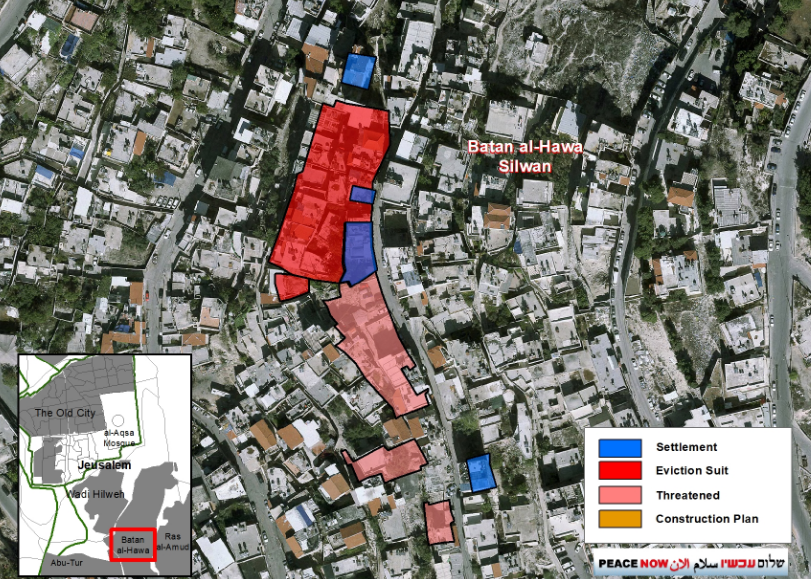
On Sunday, June 10th, the High Court of Justice is expected to hear a petition filed by 104 residents of
Batan al-Hawa (Silwan) against the Custodian General demanding the cancellation of the transfer of their land to
radical settlers. The petitioners are all representatives of Palestinian families against whom there are pending
eviction lawsuits, based on a discriminatory law that permits Jews to reclaim properties in East Jerusalem that
they lost in the war in 1948. The petitioners' main arguments are related to the question of ownership of the 19th
century Jewish trust that the settlers are claiming to represent today.
The evacuation claims against the Palestinians in Batan al-Hawa are part of a campaign of eviction lawsuits against
entire neighborhoods in East Jerusalem (Batan al-Hawa, Umm Haroun and Karem Ja'ouni in Sheikh
Jarrah).
See Background here, or read below:
The Systematic dispossession of Palestinian neighborhoods in Sheikh Jarrah and Silwan
For many years, there has been an organized governmental effort to take properties in East Jerusalem from
Palestinians and to transfer them to settlers. In the past it was mainly through the Absentee Properties Law, but
today the efforts are done mainly by the use of the Legal and Administrative Matters Law of 1970. Until recently,
this effort was disastrous for individual families who lost their homes, but now the aim is entire neighborhoods
(in Batan al-Hawa and Sheikh Jarrah). Since the horrifying expulsion of the Mughrabi neighborhood from the Old City
in 1967 there has been no such move in Jerusalem.
In recent years there has been an increase in the threat of expulsion hovering over the communities of Sheikh Jarrah and Silwan in East Jerusalem. A wave of eviction lawsuits is being conducted before
the courts, with well-organized and well-funded settler groups equipped with direct or indirect assistance from
government agencies and the Israeli General Custodian.
-
Sheikh Jarrah - Umm Haroun (west of Nablus Road) - approximately 45 Palestinian families
under threat of evacuation; At least nine of them are in the process of eviction in the courts and at least
five others received warning letters in preparation for an evacuation claim. Two families have already been
evacuated and replaced by settlers. See map
-
Sheikh Jarrah - Kerem Alja'oni (east of Nablus Road) – c. 30 Palestinian families under
threat of evacuation, at least 11 of which are in the process of eviction in the courts, and 9 families have
been evicted and replaced by settlers. See map
-
Batan al-Hawa (Silwan) - about 100 Palestinian families under threat
of evacuation; 84 of them are in the process of eviction in the courts; 14 families were evacuated and
replaced by settlers. See map
The basis for all claims is the same: the Legal and Administrative Matters Law enacted in 1970 by the Knesset
determined that owners of properties in East Jerusalem that in 1948 were transferred to the control of the
Jordanians, can receive it back from the Israeli General Custodian. The law was not applied to Palestinian land
owners who lost properties in the same war and in the same circumstances in West Jerusalem, thus only Jews
can reclaim their properties while Palestinians cannot.
Examination of the protocols of the legislative process indicates that the legislators viewed a situation in which
Jews would be able to return vacant assets, while in cases where the assets were occupied, they would
receive financial compensation. The legislators took into account the personal connection of an individual
to his property, but in practice, the law is being used by settlers who have nothing to do with the
original owners. In the end, a mechanism was created by the government and the Custodian General to
exploit the law in order to take control of Palestinian populated areas and to transfer them exclusively to
settlers. This is a government move, and an attempt to present it as a personal conflict of
property restitution is nothing more than feigning innocence. It is important to note that the Jewish
owners of the properties received double compensation: through alternative housing received from the state
in 1948, and financial compensation received from the settlers in recent years, aimed at serving the settlers'
ideological agenda. This contradicts that legislators' original purpose. The individual right that the law
sought to protect was made by the settlers and with the assistance of the General Custodian to the right of one
(Jewish) collective at the expense of another (the Palestinian) collective.
1. The court hearings: When the field is crooked, the result is crooked
After the decision to annex some 70 square kilometers to Jerusalem in 1967, the Israeli government was required to
deal with the anomalous situation of the residents of East Jerusalem, who found themselves under Israeli rule.
This anomaly brought to some legal fictions that in practice are detached from reality.
For example, the status of Palestinian residents of East Jerusalem as permanent residents of Israel was regulated
by the Entry into Israel Law, as if they had recently come to Israel and had not lived here for
years, and Israel was the one to “come” to them; or the Absentee Property Law applied to assets in
East Jerusalem whose owners live in the West Bank, sometimes only a few meters from the property they own.
The same applies to tenants living in properties that were owned by Jews prior to 1948: the ruling in courts
determined for many of them that they enjoy the rights of protected tenants, and the proceedings
before the court are conducted as if an ordinary civil dispute is taking place between a landlord and a tenant.
There is nothing far from this, since this is an organized governmental effort that does not have any
connection to the purpose of the Tenant Protection Law. Only by turning a blind eye can one ignore the real context
of the proceedings.
A discriminatory law: The circumstances of the legislation of the Legal and Administrative Matters Law
(1970)
The Legal and Administrative Matters Law of 1970 was legislated in order to deal with many different issues
concerning the areas and people annexed to Jerusalem in 1967. One of those issues was the status of properties
owned by Jews before 1948.
In the 1948 war some 20,000 Palestinians fled or were forced to leave their homes in West Jerusalem, and about
2,000 Jews fled or were forced to leave East Jerusalem, mainly from the Jewish Quarter of the Old City. The Law and
Administrative Matters Law was intended to correct what it considered to be a historical injustice by restoring the
property to its original Jewish owners. However the law was not applied to Palestinian properties, and it turned
out that in one city, as a result of one war, two populations lost property, yet only one national group is
entitled to repair the historical injustice and return its property, while the second population cannot, even if
some individuals live just a few hundred meters from their properties in the western part of the city. This
is the original sin of the law and of the settlements in Batan al-Hawa and Sheikh Jarrah.
The law was not meant to be applied to inhabited properties
Examination of the protocols of the legislative process indicates that the legislators viewed a situation in which
Jews would be able to return vacant assets, while in cases where the assets were occupied, they would receive
financial compensation.
In the words of Acting Knesset Constitution Committee Chairman MK Haim Tzadok (5/8/1968):
-
“If at the time the Israel Defense Forces entered Jerusalem these assets were already in the hands of an
individual who purchased them directly or indirectly from the Custodian of Enemy Property, we will not
intervene in that ‘Title.’”
Attorney General Moshe Ben-Ze'ev detailed:
-
“Properties for whom there are those who claim to have acquired it in good faith - we did not include him
under this section and we left it to the possible litigation in court.”
In the first reading of the bill on July 29, 1968, the Minister of Justice concluded:
-
“We discussed the return of an asset that was found and remains in Jordanian hands, but if the Jordanian
Custodian of Enemy Property in East Jerusalem sold a house to someone and received money, this house will not
be returned.”
2. The policy of the government and the General Custodian at the service of the dispossession
The Custodian General plays a central role in the systematic evacuation of Palestinians from their homes and their
replacement by settlers. The Custodian General assists the settlers in a variety of ways, and also issues lawsuits
to evict Palestinian tenants from their property. The basic and longstanding policy of the Custodian General is to
take first and foremost the rights of the original owners. The Palestinians who live in the property more than 50
years are viewed as having a conditional right, at best.
Assistance of the Custodian General - In Um Haroun (Sheikh Jarrah) for example, in past years the representatives
of the Custodian General (CG) made tenants sign contracts claiming they are no longer protected tenants. The CG
interprets the Protection of Tenants Law in a strict way using every opportunity to take the protected status from
the tenants. In the last two years the CG issued several eviction lawsuits and sent letters threatening to evict
Palestinian tenants.
In Batan Al-Hawa, the Custodian General issued a certificate of release to the settlers who took over the
management of the Jewish trust in 2001. In 2014 the settlers lost an eviction lawsuit against the Abu Nab family,
because they failed to prove the borders of their property. At the time between the verdict and the appeal's
hearing, the General Custodian issued a revised release certificate detailing the precise boundaries of the plot.
Thanks to the new paper given by the Custodian, the settlers managed to win the appeal and the family was evicted
from the house. Since the amended release certificate was issued in 2015, the settlers have filed another 9 claims
against dozens of families.
In addition, it turns out that in December 2005, the Custodian General sold to the representatives of the Jewish
trust four additional plots that were owned by other Jews in Batan Al-Hawa, without a tender and at a low price. If
the Custodian was indeed interested in selling the assets in good faith, he would have had to make a tender and
offer the Palestinian residents of these properties the right to purchase them. But instead the custodian
transferred under the cover of darkness four plots on which dozens or even hundreds of Palestinians live in the
Batan Al-Hawah neighborhood to settlers who seek to evict the Palestinian residents and settle Jews there.
The government has several ways to prevent the evictions and the injustice:
-
Immediately: instruct the police not to secure the eviction - the police are entitled,
for reasons of public safety, to refrain from sending police to carry out the evacuation, thereby preventing
it. In the past, the police postponed many evictions of Palestinian families for reasons of public peace, and
this was approved more than once by the attorney general.
-
Change in the General Custodian's policy - The Attorney-General may instruct the General
Custodian to act differently, in view of his role as responsible not only for the original owners but also for
the tenants living in the properties:
-
Assist tenants to continue to be protected tenants - For example, to ensure
proper renovations of the properties, not to raise rental rates disproportionately, to stop eviction
activities and to grant the status of protected tenants to tenants.
-
Transfer rights when there is no owner - When no owners or heirs are found, the
General Custodian can act to enable the Palestinian residents to purchase the rights of the property
(this could be tricky if the General Custodian sells it to third parties).
-
Stop assisting the settlers, either indirectly or directly, not in locating the
properties, not in releasing them, nor in assisting in evacuation lawsuits. Stop using the settlers'
services as lawyers or land-locating experts.
-
Condition the release of the property on the undertaking of the heirs to reside in it for
at least five years, In accordance with the legislator's intention to allow the return of
assets and to prevent the exploitation of the law for the purpose of deporting Palestinian residents
and replacing them with Jews.
-
Defend justice - The Attorney General can instruct the State Attorney's Office
to join as a party in any proceeding initiated by the Custodian General and to defend justice in favor
of the residents. The legal advisor must express his opinion on the abuse of tenant protection laws
which are completely alien to the real circumstances of the cases before us, and anchor the rights of
the residents with remedies of justice.
-
Establish an independent commission of inquiry to investigate the General
Custodian conduct in recent years and its cooperation with the settlers.
-
Expropriation - since 1967 the government of Israel expropriated about one-third of the
annexed areas in Jerusalem (24 square kilometers) in order to build housing on which 55,000 housing units have
been built for Israelis. The expropriation of a few dozen dunams for Palestinian housing needs can be
justified.
-
Change of legislation - the Knesset can change or cancel the sections of the law that
allow the return of assets.
(The last two options are unlikely under the current government and Knesset.)
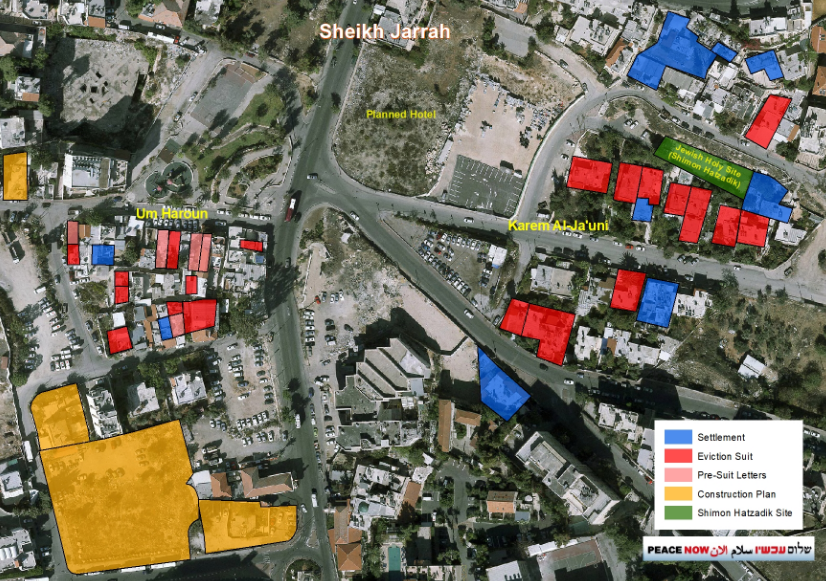



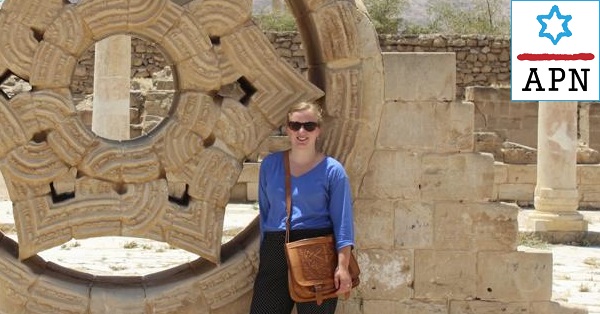
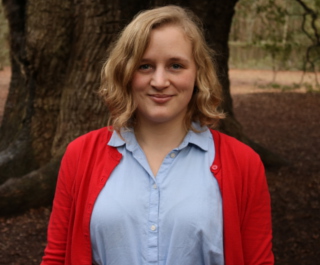

 Take a look at this photo.
Take a look at this photo.





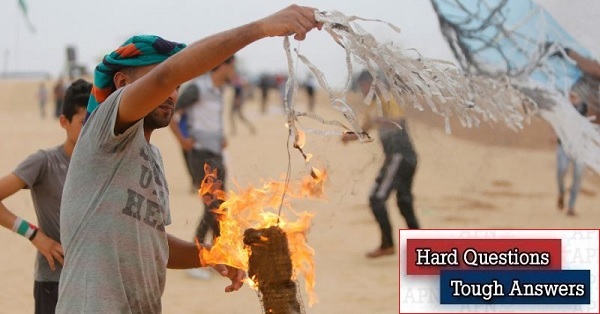
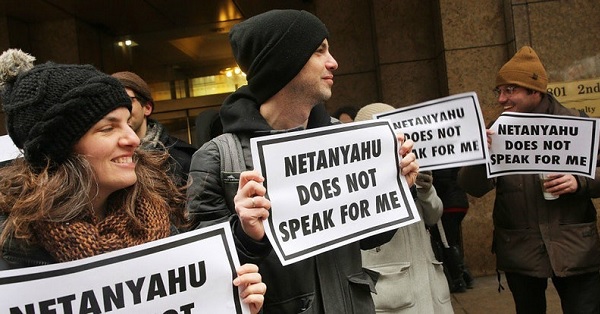
 Every morning, like many of you, I open my e-mail and groan: so much spam, so many
unwanted messages and advertisements. It makes you want to kick the computer. But there's one item I
never skip. In fact, I welcome it every day in my Inbox -- and that's
Every morning, like many of you, I open my e-mail and groan: so much spam, so many
unwanted messages and advertisements. It makes you want to kick the computer. But there's one item I
never skip. In fact, I welcome it every day in my Inbox -- and that's  Orly Halpern, a brilliant journalist in Jerusalem, excerpts the
news from an array of Israeli newspapers from left to right and gives it to us in a concise readable
format. I don't read every article, but those of special interest to me are right there in my inbox every
morning.
Orly Halpern, a brilliant journalist in Jerusalem, excerpts the
news from an array of Israeli newspapers from left to right and gives it to us in a concise readable
format. I don't read every article, but those of special interest to me are right there in my inbox every
morning.